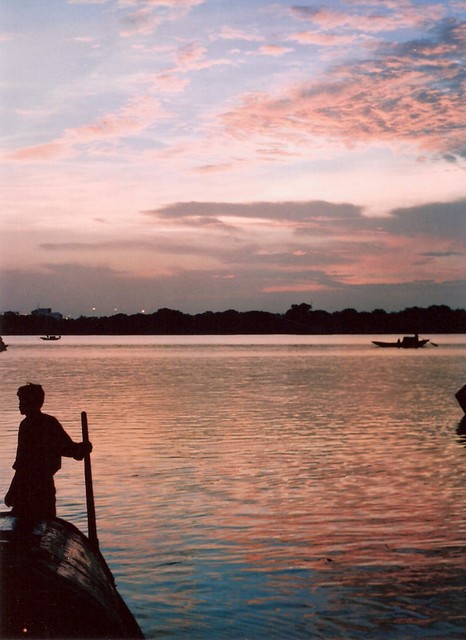– Joaquim Magalhães de Castro
All the inhabitants of Hugli were seen as vassals of the Grand Mogol and paid customs duties to him that satisfied the governor of the recently conquered province. To some of the merchants, “the most important in the land,” Acbar, and then Jahangir, had at one time granted a series of privileges and exemptions, which guaranteed prosperity to the borough and, above all, the indispensable tranquility.
There was an inherent pact, a pre-agreed status quo: the Moghul lords were suited to the commercial activity exercised by the Portuguese; it was convenient for them to firmly remain in that place, away from the fiscal control of the Goa authorities and from the oppressive morals of the Holy Office’s miscreants. The ill-fated slave trade and the sale of arms to privateers in the Gulf of Bengal were rusty specks in the oiled gear …
And, in reality, everything could have continued as it was, despite the aggravating factors, had it not been for the unusual abduction of the woman of a high official of the Mogul court (certainly played by the usual raised or local pirates), who would be rescued and later converted to the Christian Faith by Brother Sebastião Manrique, whose saga we will deal with in due time. That was the last drop that overflowed the already full glass placed on Shah Jahan’s priority table.
It was the spring of 1632 in the month of May. Four years had passed since the accession to the throne of Acbar’s grandson. Troubled, the man then ordered his representative in the occupied province of Bengal, the competent Shaista Khan, to plunder and burn, “in the name of the Prophet and in the interest of the State,” the Portuguese city of Hugli.
Present in Dhaka – as seen here, the headquarters of the expanding Mughal power – the Jesuit priests, always close to the corridors of power and aware of court intrigues, had access to the martial decree and soon issued an urgent notice to Hugli to to prepare for the storm, because it was a big one.
The warning fell on deaf ears. Nobody believed that the Mogul king “dared” to touch the industrious Portuguese merchants. These were thinking: after all, what harm did we do? Interestingly, and although everyone was Catholic, or induced to do so, with an abundance of religious and respective orders where they fit well, no one had given credit when, years ago, two friars, former residents, astrologers or seers (or perhaps both), predicted a great disgrace for the city and its inhabitants. Shaista Khan (whom the Portuguese called Cassim Cã) was a good character, well connected at court, a renowned poet and also the husband of Nur Jahan’s sister, the widowed empress (Jahangir’s wife) and one of the most famous Indian women of her time.
Khan liked mystical contemplation more than military campaigns. We can understand, therefore, the extent of their reluctance to comply with such orders.
On the other hand, it was necessary to weigh the feelings of the native merchants, who were naturally interested in the continuity of the Portuguese in those places, since trade with them was of “very poor yield.” So, quiet, like fish in the water, the people of Hugli did not even bother to fortify the city. But although they had no bulwarks or large-scale artillery, the few men there (about three hundred, who – added to the fifteen hundred Indians – constituted the local military contingent) were excellent snipers and of indomitable courage.


 Follow
Follow


